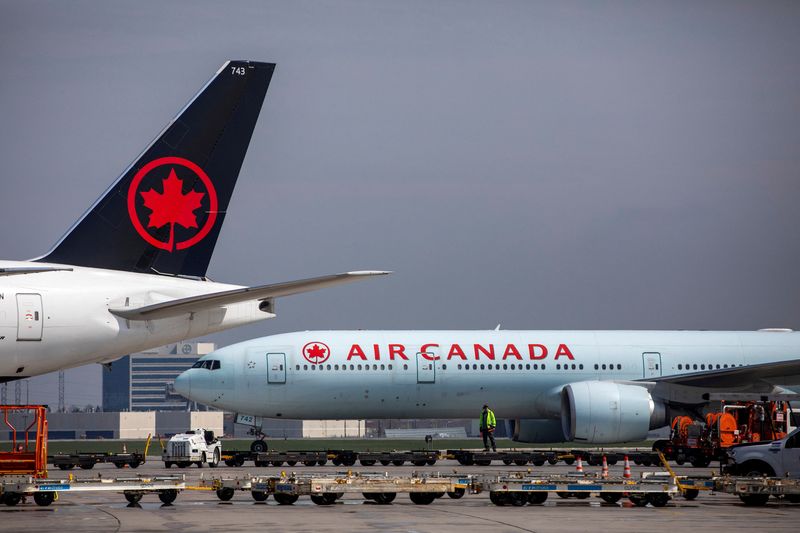(Reuters) -Air Canada is growing capacity to meet robust demand for travel after Canada's largest airline reported a smaller-than-expected quarterly loss on Friday.
Major airlines are benefitting from rising travel demand and airfares, as traffic rebounds to levels seen prior to the COVID-19 pandemic, despite contending with higher costs and strapped balance sheets.
Canada, which lifted all COVID-related restrictions last year, has seen a strong rebound in international leisure and corporate travel, allowing airlines to raise fares and cover costs.
"Our first quarter financial results exceeded both internal and external expectations and we expect demand to persist, supported by strong advance bookings for the remainder of the year," Air Canada CEO Michael Rousseau said in a statement.
The Montreal-based airline said it plans to increase its capacity for the current quarter by 22% from a year earlier.
North American carriers remain bullish on filling airplane seats due to limited capacity and a shift in consumer spending from goods to services.
Air Canada reported an adjusted loss of C$0.53 per share for its first quarter ended March 31, compared with analysts' average estimate of C$0.74 loss per share.
Operating revenue more than doubled from a year earlier to C$4.89 billion ($3.66 billion), beating Wall Street expectations of C$4.35 billion.
Earlier this month, the airline had raised its forecast for full-year core profit, citing lower-than-anticipated fuel costs and stronger-than-expected demand.

Air Canada pilots are pressing for 'historic' gains in salary and conditions, with full bargaining likely to start this summer, their union said on Thursday in a letter seen by Reuters. The carrier has said is premature to discuss the timing of talks with its pilots who reached a 10-year contract in 2014.
($1 = 1.3372 Canadian dollars)